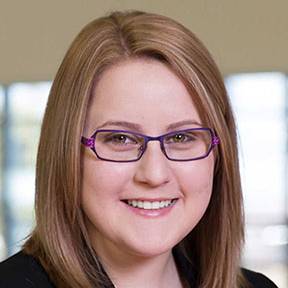Graduate Options & Programs At-A-Glance
If you have a bachelor’s degree and are interested in getting a Utah license to teach exceptional students or national certification in ABA, you have two options. The first option is to enter a graduate program and complete an M.Ed. or M.S. degree program along with licensure. The second option is to enter a graduate program and complete only the state requirements for endorsement/second licensure or national (ABA certification) requirements. You can choose from programs that focus on Mild/Moderate Disabilities, Severe Disabilities, Preschool Special Education/Early Intervention, Visual Impairments, Deaf and Hard of Hearing, Deafblind, or Applied Behavior Analysis (ABA).
PhD Program
A research-oriented program with an interdisciplinary focus that prepares students for leadership positions in special education. Applicants should have a master's degree in special education or a closely related field from an accredited college or university. They also should have had field experience prior to applying for admission to the program.
View Admissions Information
Master's Degree Specializations
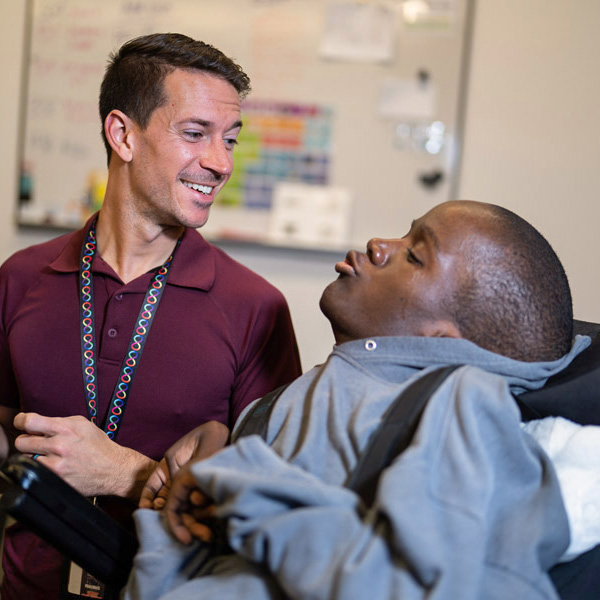
Severe Disabilities
The Severe Disabilities program trains teachers to work with K-12 students and adults up to age 22 who have severe disabilities. It focuses on creating personalized instruction plans, managing behavior, and using data to guide interventions. The program combines coursework with hands-on experience in special education classrooms.
View Admissions Information
Specialization Information
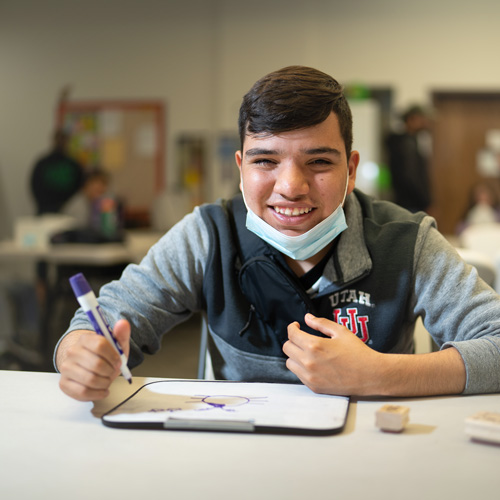
Mild/Moderate Disabilities
This program trains graduates to teach students with high-incidence disabilities like learning disabilities, intellectual disabilities, emotional and behavioral disorders, and communication disorders in grades K-12. They will use effective teaching strategies that are backed by research. Graduates may also consider completing the ESL Endorsement if they plan to work with Mildly/Moderately disabled students.
View Admissions Information
Specialization Information

Preschool & Early Intervention
Graduates learn to work with infants, toddlers, and preschool children who need extra help in their development. They get to partner with families and other experts to create personalized plans for each child. Family-centered early intervention specialists get to work with families in their homes.
View Admissions Information
Specialization Information
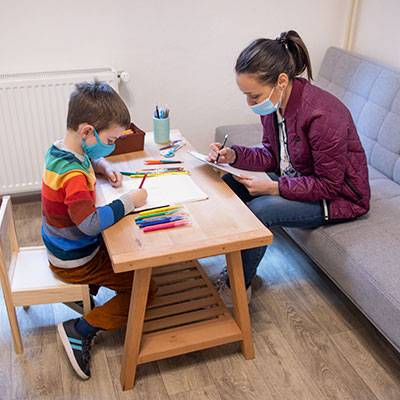
Applied Behavior Analysis (ABA)
Graduates will learn to work with children and adults with or without disabilities. They will learn many concepts and strategies for behavior analysis that they can use in a variety of settings.
View Admissions Information
Specialization Information
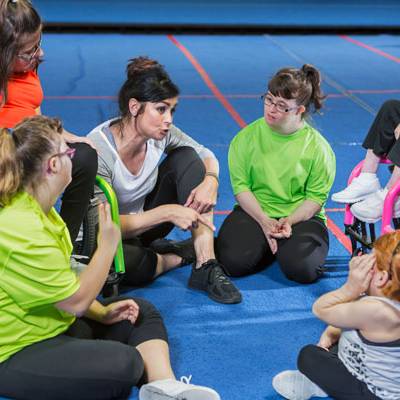
Adapted Physical Education
Graduates prepare to provide specialized physical education to students with diverse abilities. The APE program offers hands-on learning opportunities in local schools through U-FIT.
View Admissions Information
Specialization Information

Visual Impairments
The Visual Impairments specialization covers a range of topics such as the Unified English Braille code, Assistive Technology for Students with Visual Impairments, and the Expanded Core Curriculum. Candidates learn how to support their students in developing social skills, succeeding academically, and more.
View Admissions Information
Specialization Information
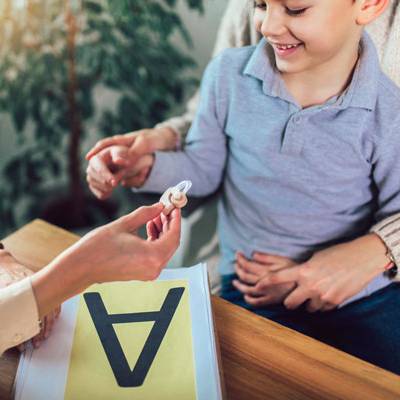
Deaf & Hard of Hearing
The Deaf and Hard of Hearing specialization coursework covers a wide range of topics, including spoken language through audition, visual communication approaches, and American Sign Language. The program emphasizes language and literacy development, social skills, cognitive development, and academic success.
View Admissions Information
Specialization Information
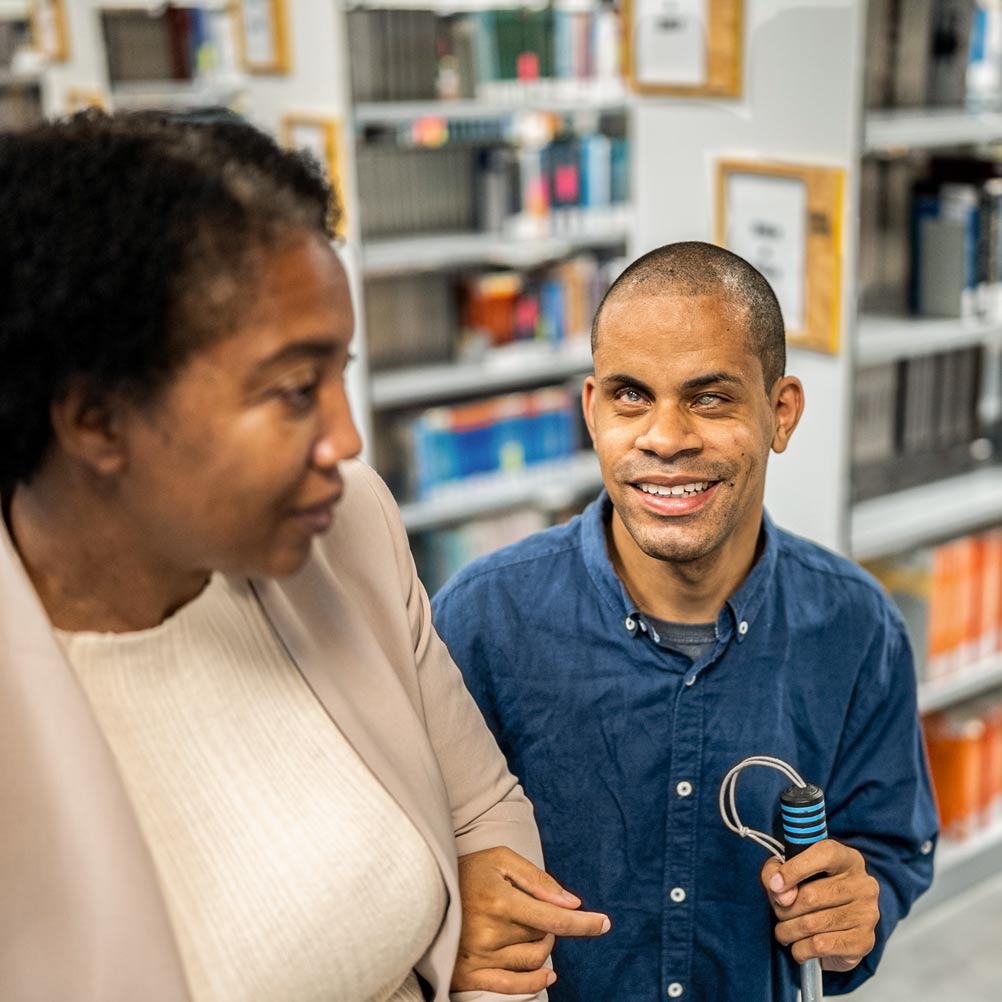
Deafblind
This program prepares teachers to work with children and youth who have both hearing and vision impairments. The program teaches candidates how to meet the unique and intensive needs of this population. Teachers who complete this program can get an endorsement in Deafblindness in Utah, which means they're experts in this area and can help children with this disability in many ways.
View Admissions Information
Specialization Information
Professional Practice
Professional Practice degree is our General Masters in Special Education and does not lead to teacher licensure but provides foundational content in the area of Special Education. The knowledge gained through this program is valuable througout many areas of studies and is ideal for thiose who are likely to work with disabled students and their families.

